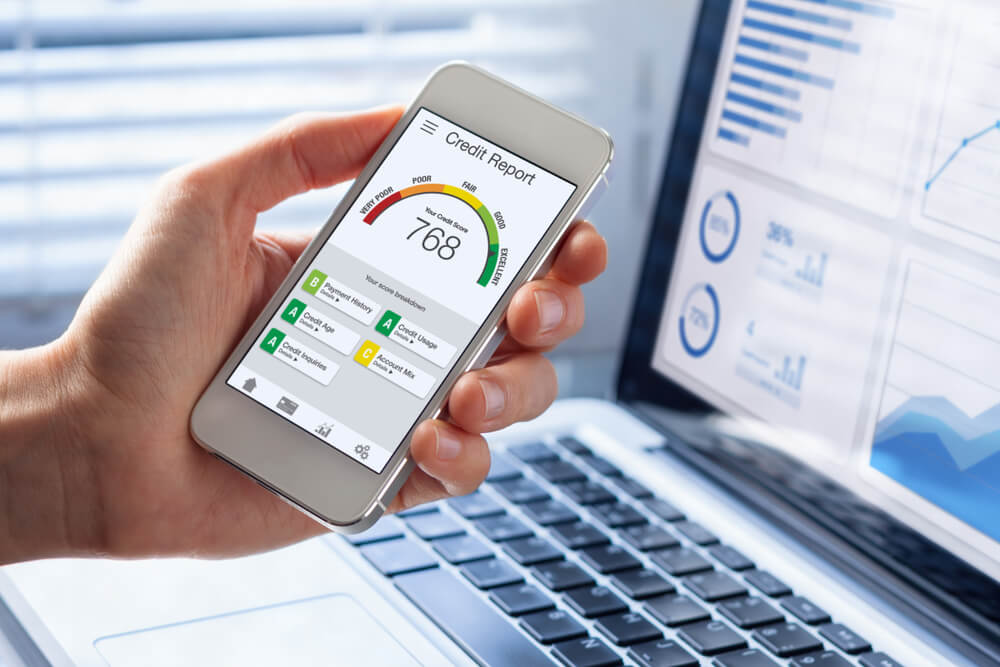‘Paying later’ may solve the immediate issue but it can create a longer-term problem.
Many of us may have reached for our credit card to bridge the gap until payday. But what may seem to be a lifesaver in times of need, can be the start of late payments fees, interest charges and distressing debt letters.
Most credit cards have eye-watering interest rates and if you can’t afford the repayments, your monthly bill will start to spiral, which could leave you with a greater balance that what you started with.
You may not be able to get rid of your debt in one go, but there are some small changes you can make to get your finances into better shape and get your bank balance back on track.

.
Establishing what you have available to put towards clearing your debts is the starting point of taking control and getting on top of your finances. If you don’t have a budget, start one now. Documenting your bills and expenses can be the eye opener you need to start tightening your belt.
If you need a little help, you can use our budget planner to get an understanding of your affordability. Or, if you prefer to create your own spreadsheet, here’s a quick guide to creating your own budget planner.
You can then work out manageable payment plans with your creditors that fit into your budget. At Cabot we offer flexible, means-tested payment plans to make sure they’re affordable for our customers.
Prioritise which debt to pay first
What are priority debts?
Priority debts are debts that are considered the most important as they can have the biggest impact on your situation if left unpaid. You can find a list of debts we class as priority here:
If you have multiple debts, knowing which ones to pay first can be daunting - where do you start?
If you have arrears on your mortgage/rent, council tax or utility bills, make sure to prioritise these first, as non-payment can result in receiving court summons, your heating/water/electricity being turned off or even possibly losing your home. Your creditors should support you and make sure your priority bills are either up to date or in a payment arrangement before agreeing a payment plan with you for their debts.
Once you have managed to tackle your priority debts, turn to your non-priority debts. The bigger bills are going to take more time to pay off, so try to keep up with the minimum payments to stop them getting out of control.
Debts with a higher interest rate can easily spiral out of control if left unpaid, so it’s worth speaking to a debt advisor for advice on which non-priority debts to tackle first and how to keep on top of your finances. They will take into consideration your financial circumstances before offering a solution to suit you. You can find a list of organisations we recommend here.
Talk to your creditors
Keeping your creditors up to date is the best way to avoid any unwanted calls or letters. So, if you think you’re going to struggle with payments, let them know. They’ll talk you through all your options, that may include a reduced payment arrangement that better suits your situation or even offer you a temporary hold.
Ultimately, it could end up costing you a lot more if you don’t keep them in the loop and end up missing payments, so it’s important to continue regular contact with your creditors.

.
Check your credit rating
Your credit rating is far more important than you may realise. Everyone has a credit rating which varies according to your financial history. Unpaid bills that are reported on your credit report may negatively impact your credit score.
Banks and other lenders will check your credit rating before deciding whether to lend you money or approve you for a credit card. This means, having a poor credit rating may affect your ability to secure a mortgage, car finance, a mobile phone contract, or make borrowing more expensive for you, with lenders possibly increasing your rates to compensate for the extra risk.
It’s easy to check your own credit rating, just sign up to a credit reference agency to see your credit report. If your credit is suffering, read our article 9 tips on how to improve your credit score.
Ask for help

Credit card debt can be intimidating, but there is plenty of help out there. If you’re experiencing financial hardship, and would like free impartial debt advice, we recommend contacting independent charity organisations that specialise in debt. They can provide you with help and guidance on tackling your debts, managing your finances and some will support you with talking to your creditors on your behalf.
